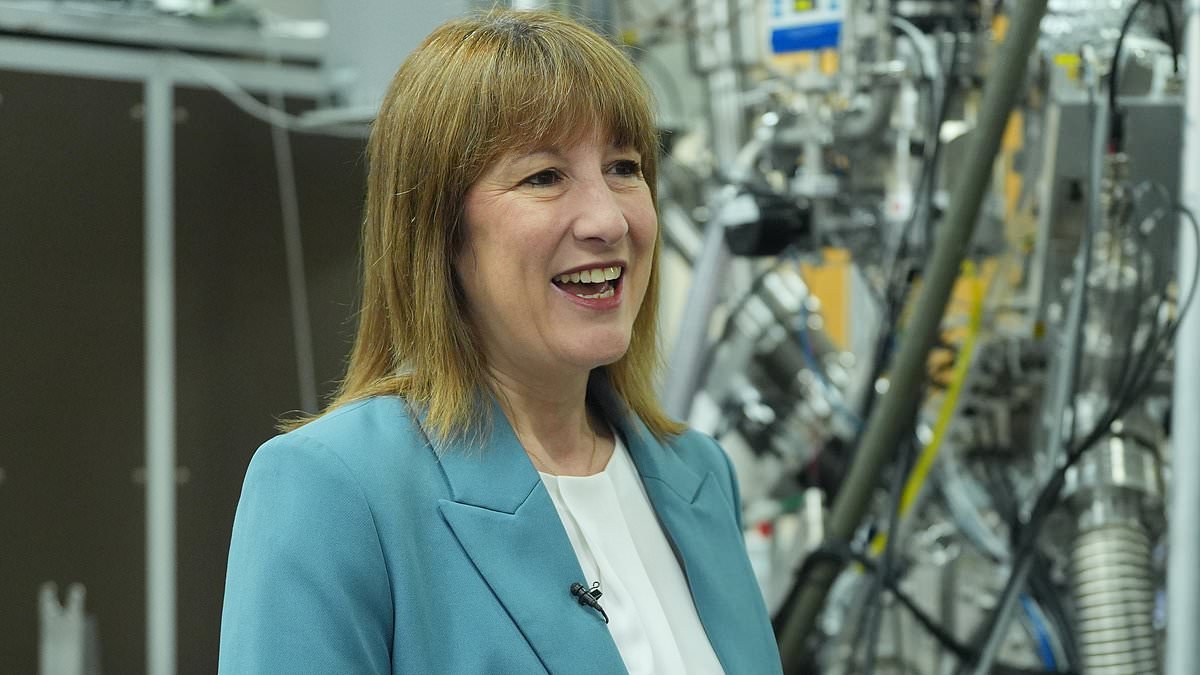Rachel Reeves has warned that the state pension must be ‘affordable’ amid fears the younger generation might not get it until they are 74.
The Chancellor said increases in life expectancy have to be taken into account after ministers launched a review.
Alarm has been sounded about the sustainability of the triple lock, which means the state’s old-age payouts rise by whichever is highest out of rates of inflation, earnings or 2.5 per cent every year.
The OBR watchdog warned earlier this month that the policy could cost three times as much as originally expected by the end of the decade, as the ageing population piles further pressure on public finances.
The pension age is already slated to rise to 67 between 2026 and 2028.
Currently the legal position is that it will reach 68 from 2044-46.
But a previous report by former Tesco director Baroness Neville-Rolfe cautioned that might need to be accelerated.
With the triple lock in place there are estimates the level would have to hit 74 by 2065–67 in order to maintain spending at around 6 per cent of GDP.
Ms Reeves told reporters this morning: ‘We have just commissioned a review of pensions adequacy, so whether people are saving enough for retirement, and also the state pension age.
‘As life expectancy increases it is right to look at the state pension age to ensure that the state pension is sustainable and affordable for generations to come.
‘That’s why we have asked a very experienced set of experts to look at all the evidence.’
Lady Rolfe has suggested setting a rule that Britons receive pensions for 31 per cent of the average life expectancy.
Those principles would have big implications for younger workers, with the Tory peer saying that the retirement age should reach 68 between 2041 and 2043.
It could then reach 69 between 2046 and 2048 – with those projections indicating that it would need to hit 70 in the early 2050s.
That would be when people born in the 1980s would be looking to bow out of the workplace.
Dr Suzy Morrissey has been commissioned to look at the ‘factors government should consider’ on state pension age.
And the Government Actuary’s Department has been asked to produce a report on the proportion of adult life in retirement.
However, it is understood that final decisions are highly unlikely to be taken until the next Parliament, despite concerns about giving people enough time to prepare for changes.
Helen Morrissey, head of retirement analysis at Hargreaves Lansdown, said: ‘There will be many factors that need to be assessed during this review of the state pension age.
‘One of the most important will be healthy life expectancy which according to the latest data hovers in the early 60s.
‘This means the reality is that many people will face real difficulties in continuing to work until their mid-to-late 60s and could face a sizeable income gap while they wait to receive their state pension.’
Rachel Vahey, head of public policy at AJ Bell, said: ‘An ageing population places an increasing burden on taxpayers, with state pension costs rising and fewer working-age taxpayers to cover the cost.
‘Future governments will hope that an improved economy and growing tax receipts will help alleviate some of the pressure. But that can’t be guaranteed and there needs to a be a credible plan for maintaining affordability.’
The Government says 45 per cent of working-age adults are putting nothing into their pensions.
Work and Pensions Secretary Liz Kendall said yesterday she was turning to the Pensions Commission, which last met in 2006, to ‘tackle the barriers that stop too many saving in the first place’.
The previous commission recommended automatically enrolling people in workplace pensions, which has seen the number of eligible employees saving rise from 55 per cent in 2012 to 88 per cent.
DWP analysis suggested 15million people were undersaving for retirement, with the self-employed, low paid and some ethnic minorities particularly affected.
Around three million self-employed people are said to be saving nothing for their retirement, while only a quarter of people on low pay in the private sector and the same proportion from Pakistani or Bangladeshi backgrounds are saving.
Women face a significant gender pensions gap, with those approaching retirement in line to receive barely half the income that men can expect.
The commission will be led by Baroness Jeannie Drake, a member of the previous commission, and report in 2027 with proposals that stretch beyond the next election.
Laurence O’Brien, a Senior Research Economist at the IFS think-tank, said: ‘Despite the success of automatic enrolment in increasing the share of employees saving in a workplace pension, our recent research has shown that, among employees saving in a defined contribution pension, almost seven million appear on course for a disappointing income when they reach retirement.
‘Alongside this, only one in five self-employed workers are currently saving in a pension.
‘In the face of these trends, the launch of a new Pensions Commission, focusing on the adequacy of retirement incomes is welcome.
‘However, any reforms to boost pension saving must be carefully targeted to minimise falls in take-home pay among those who can least afford them.’
